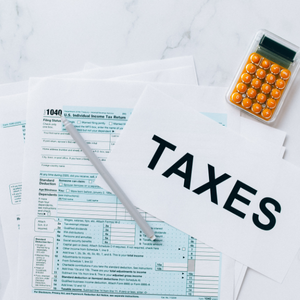
Understanding Capital Gains Tax on Real Estate Sales in Dallas, TX
When selling a home in Dallas, TX, it’s crucial to understand how capital gains tax applies to real estate transactions. Capital gains tax is levied on the profit earned from the sale of property, and in the context of Dallas real estate, it can significantly impact your financial outcome.
The IRS allows for certain exclusions; for instance, if you’ve lived in your primary residence for at least two of the five years preceding the sale, you may qualify for an exclusion of up to $250,000 in gains for single filers or up to $500,000 for married couples filing jointly. However, it’s important to note that these exemptions apply only if specific conditions are met.
Additionally, Texas does not impose a state capital gains tax since it has no state income tax, but federal taxes still apply. Properly calculating your taxable gain involves subtracting your home’s adjusted basis, which includes the original purchase price plus improvements, from the sale price.
Homeowners should also consider any potential impacts from depreciation recapture if they’ve used their home for business or rental purposes. Understanding these elements is essential for homeowners in Dallas looking to optimize their real estate investments while minimizing their tax liabilities.
If you’re concerned about how capital gains tax might affect your profit when selling, working with a trusted home buyer can simplify the process. A Cash Home Buyer in Dallas offers fair cash deals, a hassle-free closing process, and the expertise to guide you through selling your property while minimizing unnecessary costs.
Key Factors Influencing Capital Gains Tax for Home Sellers in Dallas, Texas
When selling a home in Dallas, Texas, understanding the key factors that influence capital gains tax is essential for homeowners looking to maximize their profit. One major factor is the duration of ownership; homes owned and occupied as a primary residence for at least two of the five years preceding the sale may qualify for a significant exclusion from capital gains tax up to $250,000 for single filers and $500,000 for married couples filing jointly.
The property’s purchase price and any qualifying improvements made during ownership can also impact the taxable gain by increasing the home’s adjusted cost basis. It’s important to consider how local market conditions affect property values over time, as significant appreciation can lead to higher taxable gains.
Additionally, Texas’s lack of state income tax is advantageous, but federal tax implications remain a crucial consideration. Keeping detailed records of all transactions and expenses related to home improvements is vital for accurately calculating potential tax liabilities.
Homeowners should also be aware of exceptional circumstances, such as involuntary conversions or military service exceptions, that might offer additional relief or deferment opportunities under IRS regulations.
If you’re looking to sell your Dallas home quickly while navigating these tax considerations, working with cash home buyers in Dallas and nearby cities can simplify the process. They provide fast offers, handle paperwork efficiently, and can help you close on your schedule, giving you more control over timing and minimizing potential tax impacts.
Navigating the IRS Guidelines on Property Sale Taxes in Dallas
Navigating the IRS guidelines on property sale taxes in Dallas requires a comprehensive understanding of capital gains tax implications when selling a home. In Dallas, homeowners must carefully assess whether their property sale qualifies for an exclusion under the IRS primary residence exemption, which allows for up to $250,000 of tax-free capital gains for single filers and $500,000 for married couples filing jointly.
To qualify, sellers must have owned and lived in the home as their main residence for at least two out of the last five years before the sale date. It’s crucial to accurately calculate any capital improvements made during ownership since these can increase the property’s basis and reduce taxable gains.
Sellers should also be aware that any period of non-qualified use, such as renting out the property, can affect eligibility and exclusion amounts. Additionally, understanding how state-specific rules in Texas may interact with federal regulations is essential for optimizing tax outcomes on real estate transactions in Dallas.
Consulting with a tax professional or real estate expert familiar with both IRS guidelines and local market conditions can provide invaluable insights into minimizing tax liabilities while maximizing profits from home sales.
Timing Your House Sale: Strategic Considerations for Reducing Capital Gains Tax

If you live in Dallas, TX, strategically planning the timing of your house sale is critical for minimizing capital gains tax. Selling a property typically results in capital gains tax liability. However, some tax exemptions may be available, which, if planned for, can significantly aid in minimizing capital gains tax liability.
As an example, those who have resided in a Dallas home for at least two out of the five years preceding the sale may be eligible for the so-called 121 exclusion. This permits a single filer to exclude $250,000, while married couples can exclude up to $500,000. Proper timing of the sale can maximize the benefits of this exclusion.
Moreover, having a good grasp of the economic conditions in Dallas, as well as working with your realtor, can allow you to strategically plan the sale for the peak market periods, which would increase your Dallas home sale price while remaining compliant with the regulations of the IRS on capital gains tax. With these goals in mind, you can significantly reduce capital gains tax liability and make important decisions while selling the house.
Filing Requirements for Reporting Real Estate Sales in Texas
If you’re selling a home in Dallas, paying attention to the filing requirements for reporting real estate sales is critical in managing capital gains tax. Moreover, in Texas, it is mandatory for homeowners to report any profit made from selling their primary residence to the IRS using Form 8949 in conjunction with Schedule D as part of their federal tax return.
Check to see if you qualify for the Section 121 exclusion, which permits eligible taxpayers to exclude up to $250,000 ($500,000 for married couples filing jointly) of capital gains on the sale of the primary residence. The taxpayer must have owned the house for at least two of the last five years before the sale to be eligible for this exclusion.
Also, retaining records for the purchase price of the home, any improvements made while owning the house, and any selling costs incurred helps to determine the home’s adjusted basis and the estimated tax burden on the gain. Texas is one of the states that does not levy a state capital gains tax, but, as with all states, Texas residents must adhere to federal tax law.
Selling a property requires a tax strategy, and a professional who specializes in local Dallas real estate and the IRS’s broader framework can help a homeowner maximize and optimize their tax outcomes.
Differentiating Between Short-term and Long-term Capital Gains on Home Sales
When selling a home in Dallas, TX, it’s crucial to understand the distinction between short-term and long-term capital gains, as it significantly impacts your tax liability. Capital gains are the profits realized from the sale of an asset, such as real estate.
If you have owned your home for less than a year before selling, any capital gain is considered short-term and taxed at ordinary income tax rates, which can be higher. Conversely, if you’ve held the property for more than one year, the gain is classified as long-term and generally benefits from lower tax rates.
This differentiation is vital for homeowners looking to maximize their net proceeds from a sale. Understanding these nuances helps sellers make informed decisions about when to sell their property to minimize capital gains tax.
For residents of Dallas, which has seen significant real estate appreciation, planning around these timeframes can lead to substantial savings on taxes due to favorable long-term rates.
If you’re ready to sell your home and want to explore ways to minimize taxes while still getting a fair cash offer, don’t hesitate to contact us today. Our team specializes in helping Dallas homeowners navigate the selling process quickly and efficiently while keeping tax implications in mind.
Common Mistakes to Avoid When Reporting Home Sale Income in Dallas, TX
There are specific mistakes homeowners are likely to make while reporting income from selling a house in Dallas, TX, which could create problems related to capital gains tax. One misconception is not fairly estimating the adjusted basis of the property, which is more than the purchase price, as it includes major improvements and some closing costs.
Not accounting for these changes when necessary could mean a miscalculation of capital gains tax. Another error is misapplying the primary residence exclusion. Homeowners may incorrectly believe that they are entitled to the $250,000 or $500,000 exclusion irrespective of the time limits and ownership criteria that are usually attached to it.
Moreover, certain sellers tend to omit the reporting of all the taxable events related to the home sale in the federal tax return. Sometimes, they may qualify for the partial exemptions due to certain changes, health problems, or other reasons beyond their control. Finally, it is recommended that the sellers keep a record of all the transactions related to the house and all the improvements made to it, especially during income tax return filing time, in case the home is audited.
These misreporting details may result in unwanted attention from the IRS, which can lead to audits and fines. Talking to a certified tax advisor who understands the intricacies of Texas real estate would help in selling a property in Dallas while avoiding these issues and staying within the limits of state and federal laws. This will help with the primary residence exclusion in reducing capital gains liability.
State vs Federal Taxes: How Texas Laws Affect Real Estate Transactions

Knowing the difference between federal and state taxes is essential when selling a house in Dallas, Texas. At the federal level, capital gains tax is a tax on the profit from the sale of a house, and it is only charged if the profit exceeds a certain exclusion.
Texas is different in that it does not have a state income tax, and because of that, there is no capital gains tax on a state level. This is a huge plus for homeowners in Dallas, as it increases tax returns when compared to states that have both federal and state taxes.
Apart from this, some federal regulations still apply, and Dallas homeowners need to navigate those regulations to maximize their gains and accurately report any profit. Because Texas does not have a state income tax, homeowners only have to deal with federal regulations in the sale of a house and state regulations in the sale of goods and services, which enhances the appeal and value of property in Texas.
Consulting with a Tax Advisor: Best Practices for Home Sellers
In Dallas, TX, a home seller must consult with a tax advisor in order to grasp the basics and the more complex sides of the capital gains tax for home sellers. Additionally, having a reliable advisor aids in navigating the complex world of caps and exemptions of the IRS, even with its intricate rules and red tape on the exemptions, deductions, and the IRS in the real estate business.
They assist in ascertaining whether the seller qualifies for the homeowner’s exclusion, which enables homeowners to exclude gains of up to $250,000, which increases to $500,000 for couples that file as married and jointly. Tax advisors assist in ensuring that all the necessary records are kept and that all the expenses and the improvements that are needed to lessen the taxable gain are recorded.
They are involved in the tax planning for the sale in question so that the timing of the sale aligns with the needed tax value. In addition, tax advisors have a say on how the funds are to be reinvested after the sale to defer tax in some events. In the case that a seller has a home in Dallas, he must take advantage of a tax advisor to ensure that he rides with the local trends and that he is up-to-date on the taxes of the federal government and the state of Texas. To take the guesswork out of estimating taxes on your home sale, Learn about the Dallas, TX Capital Gains Tax Calculator for a clearer idea of what you might owe.
Record-Keeping Essentials for Supporting Your Real Estate Tax Claims
When it comes to capital gains tax concerning home sales in Dallas, TX, proper record-keeping is crucial to support any claims for tax deductions. Well-organized records can positively influence the amount of tax owed as well as the deductions claimed.
Proof of home improvements, along with purchase contracts and settlement statements, are essential documents, as they help in calculating the property’s cost basis. Meticulously keeping records for relevant expenses, including selling the house, is important for an accurate computation of the net gain.
Detailed records of receipts and invoices can help justify claims made for exclusions as cited by IRS rules, including the primary residence exclusion. Claims are not made in good faith, and there are no supporting documents for periods of occupancy. If they are essential, the taxpayer is inevitably at risk of not complying with IRS rules.
Digital copies, in addition to physical copies, preserve essential information, especially during audits and tax filing periods, and are easier to access.
Legal Implications of Failing to Report a House Sale Accurately
Not reporting a house sale accurately in Dallas, TX, can have legal consequences, especially in relation to capital gains tax. The Internal Revenue Service (IRS) demands accurate reporting of capital assets like homes to accurately assess the capital gains tax to be paid.
Every homeowner who has real estate assets incurs a risk of being audited and fined when such transactions are misreported. Not reporting such assets can give rise to huge fines, unpaid tax interest, and legal battles with the IRS.
Also, federal tax compliance failure can jeopardize future deals and deals with lenders and can spell doom for one’s credit rating. Homeowners should document the cost of acquiring the house, the value added in the form of improvements, and the tax exemptions that may be availed under the primary residence exclusion rule in their files.
Under the rule, homeowners who have met certain specified conditions are eligible for exclusion from the capital gains tax. Knowing these details is important to prevent the risks of non-compliance with capital gains tax regulations in Dallas.
How to Avoid Capital Gains Tax When Selling a House in Texas?
When selling a house in Dallas, Texas, homeowners can explore several strategies to potentially avoid or minimize capital gains tax. One effective approach is taking advantage of the primary residence exclusion, which allows single filers to exclude up to $250,000 and married couples filing jointly to exclude up to $500,000 of capital gains from taxation.
To qualify for this exclusion, you must have owned and lived in the home as your primary residence for at least two out of the five years preceding the sale. Additionally, consider timing your sale strategically; if you’ve experienced a major life change such as a job relocation or health issue that necessitates selling before meeting the residency requirement, you might qualify for a partial exclusion.
Another strategy involves using a 1031 exchange when selling an investment property; however, this option is typically not applicable for primary residences. This allows you to defer capital gains by reinvesting the proceeds into a similar property. Properly documenting any home improvements can also help reduce your taxable gain by increasing your cost basis.
If you’re looking to simplify the selling process while also planning around taxes, working with cash home buyers in Texas and surrounding cities can be a practical solution, since they often provide quick closings and flexible terms.
Consulting with a tax professional familiar with Texas real estate laws is advisable to navigate these options effectively and ensure compliance while maximizing tax benefits.
How Long Do You Have to Live in a House to Avoid Capital Gains in Texas?

To avoid capital gains tax on home sales in Dallas, TX, it is very important to know the use and ownership period the IRS has set. Homeowners must reside in the primary home for at least two out of the five years preceding the sale to qualify for the capital gains tax exclusion.
This also goes for Dallas, Texas, where homeowners are allowed to exclude capital gains of one quarter million dollars, or two hundred fifty thousand, for single filers and five hundred thousand dollars, or five hundred thousand, for married couples filing jointly. The key takeaway is that the two years of residence do not have to be fulfilled consecutively. What matters is that the seller has two years, or twenty-four months, of residence out of the five years.
Dallas homeowners who comply with the criteria are able to reduce, and in some cases completely eliminate, the capital gains tax liability on the sale of their homes. Understanding these key guidelines is important, especially when selling properties in Texas.
What Is the 20% Rule for Capital Gains?
In the context of sales of homes in Dallas, TX, it is important to grasp how the 20% rule for capital gains tax works in relation to the federal tax rate. The 20% rule denotes the long-term capital gains tax, which may be due when one sells a property that they have held for over one year.
As a general rule, when selling a home in Dallas, if significant appreciation in value has occurred from the purchase price and the home is deemed a long-term investment, one is likely to incur the 20% capital gains tax. This holds particularly true for high-income earners who are eligible for the IRS tax brackets.
As in other parts of Texas and the rest of the country, homeowners in Dallas can take advantage of these strategies to optimize the timing of home sales to reduce tax burdens. Moreover, consideration of the tax laws regarding primary home sales is important to figure out all exclusions, deductions, or rules that can eliminate or reduce capital gains taxes.
Combining federal tax rules and Texas-specific considerations makes local tax professionals a valuable resource to enhance the accuracy of the guidance.
Need to sell your home in Dallas? Whether you’re concerned about capital gains tax after selling a house in Dallas, TX, want to sell quickly, want to avoid repairs, or prefer a hassle-free process, A Cash Home Buyer can help. We provide fair cash offers, handle all the details, and make the sale seamless. Call us at (214) 617-1510 for a no-obligation offer and get started today!
Helpful Dallas Blog Articles
- Selling A Dallas, TX, Home With Unpermitted Work
- Closing Costs For Selling A Home Without A Realtor In Dallas, TX
- How To Sell A House With A Lien In Dallas, TX
- Home Sales In Dallas, TX, With A Pending Lawsuit
- For Selling A Mold-impacted House In Dallas, TX, Real Estate
- Selling a House With Asbestos in Dallas, TX
- Selling Your Investment Property In Dallas Real Estate Market
- How To Sell Your Parents’ House In Dallas, TX, Using Power Of Attorney
- Sell Your Dallas, TX, Home With Tenants Still In Place
- Essential Guide To Capital Gains Tax On Home Sales In Dallas, TX

| LEVY | TAX BASED | TEXAN | ASSETS | TAX EXEMPTION | INCOME TAXES |
| PRICES | TAX BRACKET | MONEY | TAX YEAR | WEALTH | U.S. |
| AMERICAN | TAX PLANNING | AVOIDING TAX | STOCKS | NIIT | NIIT IS |
| LONG-TERM CAPITAL GAINS RATES | INVESTMENT ADVICE | FINANCIAL ADVICE | INVESTMENT ADVISOR | RENTAL PROPERTIES | RENTAL PROPERTY |
| INTERNAL REVENUE CODE SECTION 1031 | INSURANCE AGENT | FILING STATUS | AVIDIAN | PASSIVE INCOME | LEASING |
| LEASE | LEASE AGREEMENT | INVESTMENT STRATEGY | INDIVIDUAL RETIREMENT ACCOUNTS | TRADITIONAL IRAS | IRAS |
| INDIVIDUAL RETIREMENT ACCOUNTS (IRAS) | HEAD OF HOUSEHOLD | EQUITY | DIVIDENDS | MANAGEMENT | ATTORNEY |
| HEIRSHIP | INHERITANCE | FEDERAL INCOME TAXES | HSAS | HEALTH SAVINGS ACCOUNTS | COMMERCIAL REAL ESTATE |
| AUSTIN | TRUST | TAX ATTORNEYS | TAX-DEFERRED | SAVINGS ACCOUNTS | RETIREMENT |
| RETIREES | INVESTMENT RETURNS | TAX ON PROPERTY | PAYMENT | NEW HAMPSHIRE | MORTGAGE |
| HOUSTON | HAMPSHIRE | GROSS INCOME | FINANCIAL ASSETS | INBOX | |
| ECONOMIES | CERTIFIED PUBLIC ACCOUNTANTS | CAPITAL ASSET | CALIFORNIA | BONDS | NET INVESTMENT INCOME TAX |
| TAX-BASED | 401(K)S | ARE TAXED AT | FEDERAL CAPITAL GAINS | 401(k)s. | LONG-TERM CAPITAL GAINS |
| MINIMIZE YOUR TAX | GAINS TAXES IN | ASSETS HELD FOR | REAL ESTATE AND | A CAPITAL GAINS | GAINS TAX RATES ARE |
| SHORT-TERM CAPITAL GAINS | FEDERAL CAPITAL GAINS TAX | YOUR CAPITAL GAINS TAX | AND LONG-TERM CAPITAL GAINS | PAYING CAPITAL GAINS TAXES | TAX-BASED |
| CAPITAL GAINS TAXES IN | GAINS TAX IN TEXAS | SHORT-TERM CAPITAL GAINS TAX | THE PRIMARY RESIDENCE EXEMPTION | LONG-TERM CAPITAL GAINS TAX | CAPITAL GAINS TAXES ARE |
| FEDERAL CAPITAL GAINS TAXES | STATE CAPITAL GAINS TAXES | TO PAY CAPITAL GAINS | A CAPITAL GAINS TAX |
